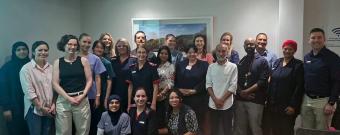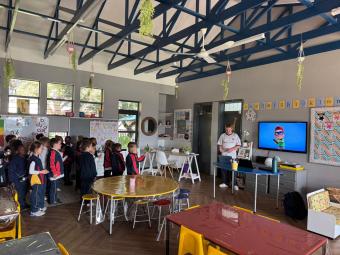Almost 4 months into the lockdown, our team in the Philippines felt the need to boost knowledge for stroke nurses during the pandemic. Here is how they did it.
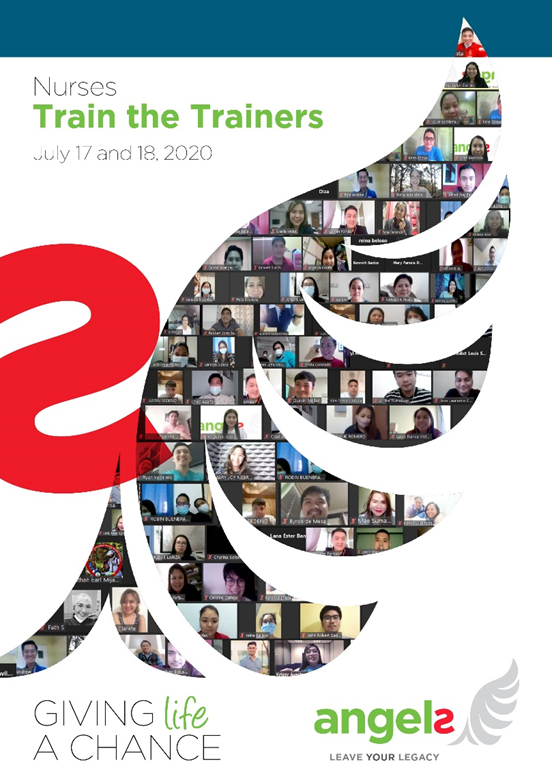
The Coronavirus pandemic affected the education and healthcare systems globally. The lockdown started last March in the entire country, which disrupted learnings in schools that led to an early closing on terms and or semesters. Suspension of movement and large gatherings were also part of the action response. This includes medical meetings done via in-hospital lectures, medical conferences, workshops and trainings. Needless to say, access to hospitals and face-to-face engagements to healthcare practitioners became limited for said activities.
With almost 4 months into the lockdown and ease of restrictions, the team felt the need to boost knowledge for stroke nurses in this time of pandemic. This team was created through the Angels - Acute Network Striving for Excellence in Stroke - Initiative Program. The team consists of 3 certified stroke nurses (SN) in the country, 1 stroke care program manager (SCPM) and 4 stroke care program specialists (SCPS). The program was delivered in two parts: (1) didactic lectures which covered basics on stroke and stroke management, rtPA treatment, administration and nursing management, the FeSS protocol, and stroke assessment tools using the National Institute of Health Stroke Scale (NIHSS) and Modified Rankin Scale; (2) interactive workshops using pathway optimization and a timed-thrombolysis station workshop. This training program for nurses was first conducted as a face-to-face learning on April 2017 for a day and a half.
Methodology
The Angels Stroke Nursing Program will be transitioned to an online synchronous learning using the Plan-Do-Check-Act (PDCA) model in two consecutive cycles.
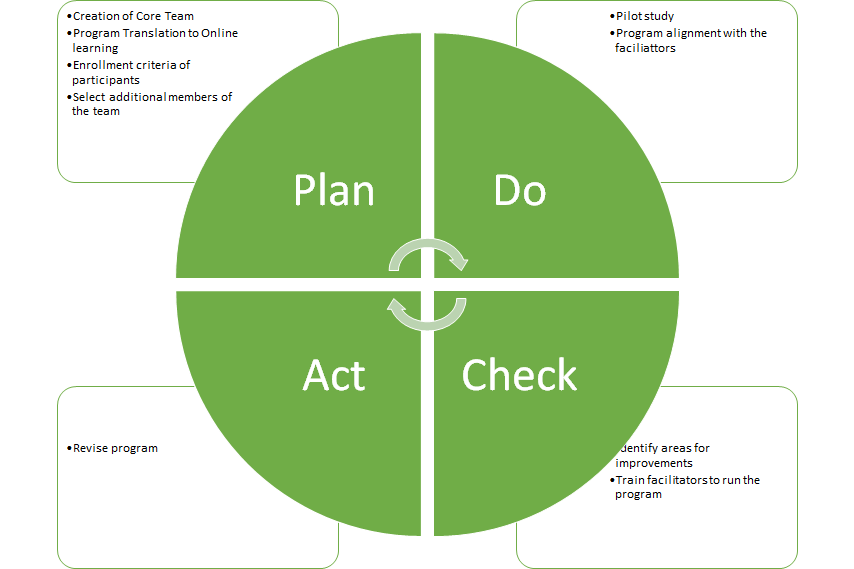
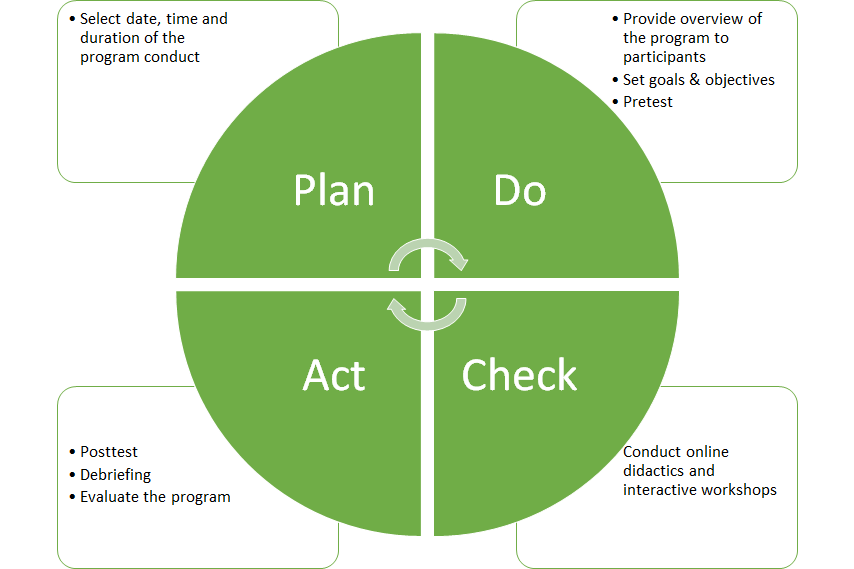
Figure 1. PDCA model in two cycles
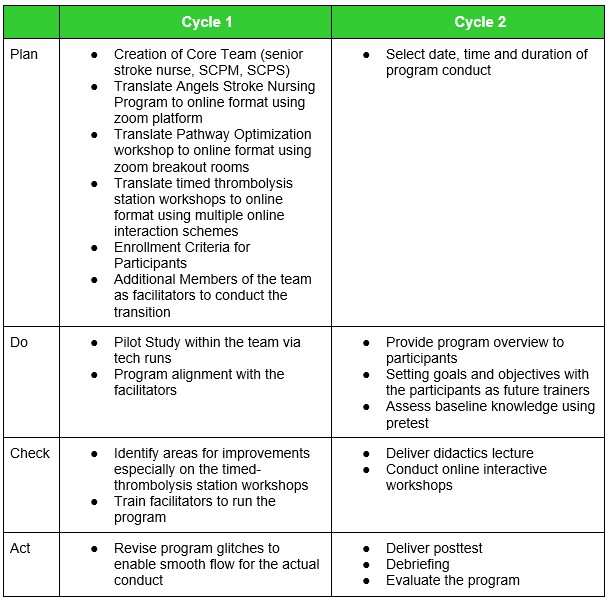
Table 1. Itemized Steps in PDCA cycles
Participants and Joining Instructions
The participants selected in the program are stroke nurses and/or nurse trainers who were recommended by their Stroke Directors who they deemed fit to become future stroke trainers in their respective hospitals. The following criteria were set for the selection of participants: (1) nurse part of the stroke team; (2) ability to re-train his/her peers; and (3) willingness to share good practices to the Angels community of nurse trainers.

The nurse participants were required to fulfill online certification of the NIHSS stroke assessment tool and the Angels e-certification for nurses accessed through the Angels website.
Discussion and Results
The online transition of the Angels nursing program in the didactics section utilized the zoom platform. The workshops were translated to online interactive sessions using zoom breakout rooms, timed-google forms utilizing different Angels checklists and assessment tools, and a visual platform for interactive videos utilizing video interactive assessment.
The effective transition was assessed using a survey tool, which covers qualitative assessments on didactics and online workshops. The didactics measures were evaluated using pretest and posttest while online workshops captured measures for the facilitators and the online delivery of the workshop using a Likert scale (1-5). Facilitators were evaluated for organization and provision of clear instructions, setting SMART objectives and expertise in the program. The online content was evaluated using the achievement of set objectives, sufficiency for interactive participation, helpfulness and relevance to work, understanding of neurological stroke emergency, utilizing learnt skills, and rightness of the workshop methodology.
There were 90 participants which represented 42 hospitals in the country. Evaluation compliance at 68% and equally distributed at 50% between private and government hospital representation. Stroke nurse participants were assigned to different hospital areas that included 23% from the emergency room, 26% from the stroke unit, 19% from ICU, 13% from general wards and 19% from hybrid areas. Results showed that the program transition was accepted and effective with an overall Likert scale of 4.76. There is no difference in methodology with regards to unit assignments and type of hospitals in which rate is at 4.7 to 4.8.
When asked to describe their experience when they underwent the timed online station workshop, below are their answers summarized in a word cloud
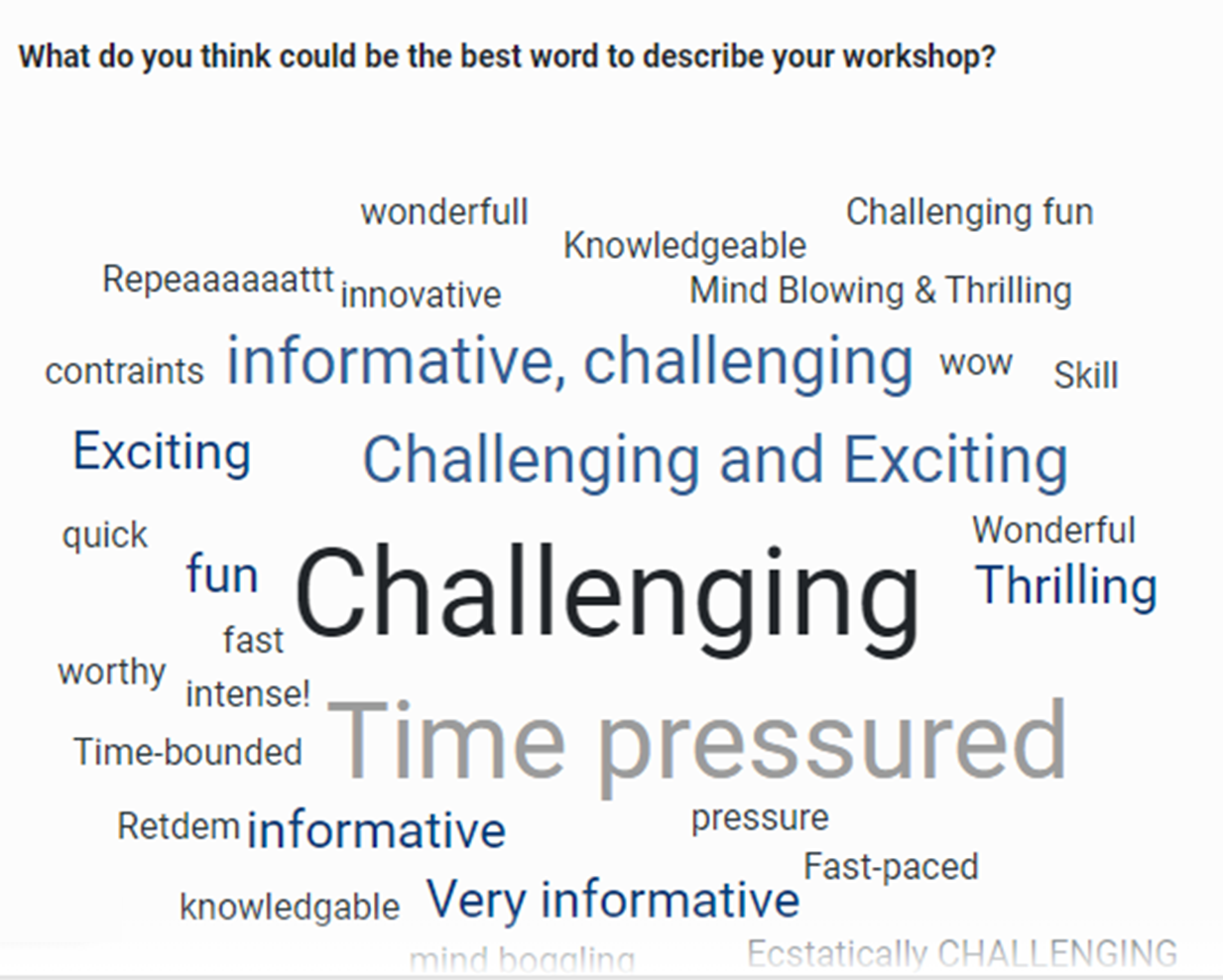
Post the activity, 89% of the nurse participants said that they are either very confident or confident in re-training their peers in their institution.
Conclusion
The new methodology in training stroke nurses via online learning using the translated program is effective. The methodology showed that the participants will likely be able to conduct the program to their respective hospitals and colleagues.
References:
Onyema, Edeh & Nwafor, Chika & Faith, Ayobamidele & Sen, Shuvro & Atonye, Fyneface & Sharma, Aabha & Alsayed, Alhuseen. (2020). Impact of Coronavirus Pandemic on Education. Journal of Education and Practice. 11. 108-121. 10.7176/JEP/11-13-12.
World Health Organization - www.who.int
Department of Health - www.doh.org
Angels Initiative. www.angels-initiative.com
Basilaia, Giorgi & Kvavadze, David. (2020). Transition to Online Education in Schools during a SARS-CoV-2 Coronavirus (COVID-19) Pandemic in Georgia. Pedagogical Research. 5. 1-9. 10.29333/pr/7937.
Diana Jean Serondo, RN, NVRN, SCRN, CLYSSB, CDA-T, Wella Kris Avila, RN, SCRN, Darren Porras, RN, Jackielyn Cortez, Anne Mendoza, Krissy Avestro, RN, Gisela Mutuc, RN, Mary Angeline Jose, RN

